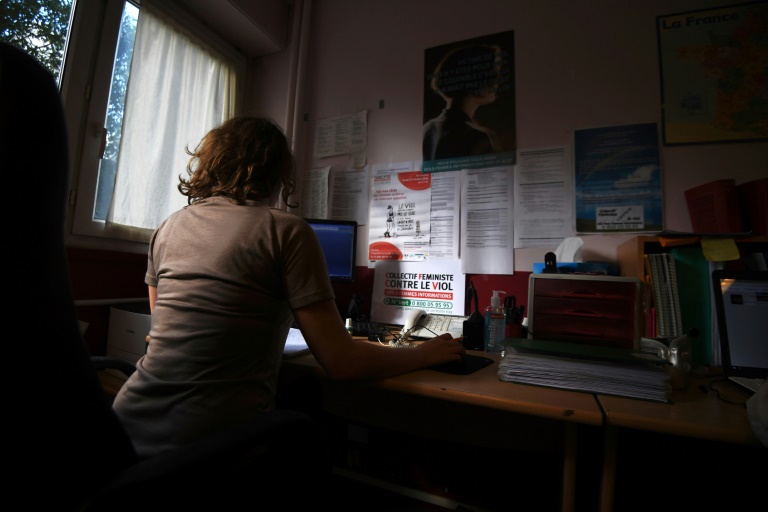‘No DNA, just RSA’: Seven moments in 2024 that will fill you with patriotism [VIDEO]
“There will be a before and an after #balancetonporc,” she told AFP.
The #balancetonporc (expose your pig) hashtag is the French variant of the #metoo campaign launched in response to the plethora of abuse allegations that toppled movie producer Harvey Weinstein.
Over the past week, social media accounts in France — like in the US — have been awash with accounts of harassment or assault, with tens of thousands of women (and some men) adding their names to the list of alleged victims.
In a country long seen as soft on sexual harassment — where the predatory style of ex-IMF chief Dominique Strauss-Kahn was an open secret before he was brought down by a US assault case brought by a hotel maid — feminists see the flood of testimonies as a turning point.
“Even if many women didn’t share their stories they will certainly have been impacted,” Haas said. “They (the accounts) give voice to a legitimate anger that has been contained for too long.”
The French campaign was started by US-based French journalist, Sandra Muller, who shared a story on Twitter of a humiliating advance from a top French executive.
“You have big breasts. You are my type of woman. I will make you orgasm all night,” she quoted him as saying in a tweet urging others to also out tormentors or aggressors.

French feminist Caroline De Haas believes France has turned a corner in standing up to sexual assault and harassment
Similar stories of harassment or abuse — on the street, on public transport, at work — flooded in immediately.
One woman described an “old man in his 70s who undressed me with his eyes in the metro”.
Another noted that “the saddest thing, in fact, is that we all have similar anecdotes”.
Christine Bard, a professor of feminist history at Angers University in western France, described the outpouring as unprecedented.
“All these women, from all over, saying the same thing, breaks the silence and the individual logic which makes you think you’re the only one afraid,” she said.
Over half of the French women surveyed for an Odoxa-Dentsu poll published Friday — 53 percent — said they had been victims of sexual assault or harassment.
– Rape reporting ‘explosion’ –
While the French film industry has so far avoided being caught up in the fallout from the Weinstein scandal, the host of a French TV talent show has been taken off air over allegations of misconduct involving a leading jury member.
M6 broadcaster said it had decided to pull France’s answer to “America’s Got Talent” after several women came forward with allegations of harassment or assault against Canadian impresario Gilbert Rozon.

Calls to the French Collective against Rape hotline have “exploded”, the group’s head Emmanuelle Piet said
The chauvinistic world of French politics has also been thrust back into the spotlight.
This week, the daughter of a former conservative minister accused an elderly former Socialist minister of having sexually assaulted her at the Paris Opera — allegations he denied.
An MP in President Emmanuel Macron’s party is facing claims of harassment by his former parliamentary assistant, Franceinfo radio reported Friday, while a member of the greater Paris regional council has been excluded by his party after claims made by two female associates.
In a sign of the momentum behind the campaign, the government has announced plans for tougher sanctions against offenders.
Gender Equality Minister Marlene Schiappa said she aimed to introduce on-the-spot fines for the harassment of women on the street by early 2018 — after a taskforce comes up with a definition of harassment.
“Today, all too often, people don’t complain because they don’t dare,” Macron said on Sunday.
French associations for the victims of sexual assault have meanwhile reported a sharp rise in calls since #balancetonporc went viral. Emmanuelle Piet, head of the French Collective against Rape said the group’s hotline had “exploded”.
Feminists like De Haas hope that many of the women who shared their stories will dare to show their faces at a November 25 rally to coincide with the International Day for the Elimination of Violence against Women.
The Odoxa poll showed most women — and a small majority of men — supporting the #balancetonporc hashtag.
But a sizeable minority — 38 percent of women and 47 percent of men — said they feared it would serve as a conduit for “unverified complaints that can lead to all sorts of abuses”.
And as with other social media campaigns that mobilise millions online, the proof of its effectiveness will be in whether it succeeds in changing behaviour in the real world.
Download our app and read this and other great stories on the move. Available for Android and iOS.